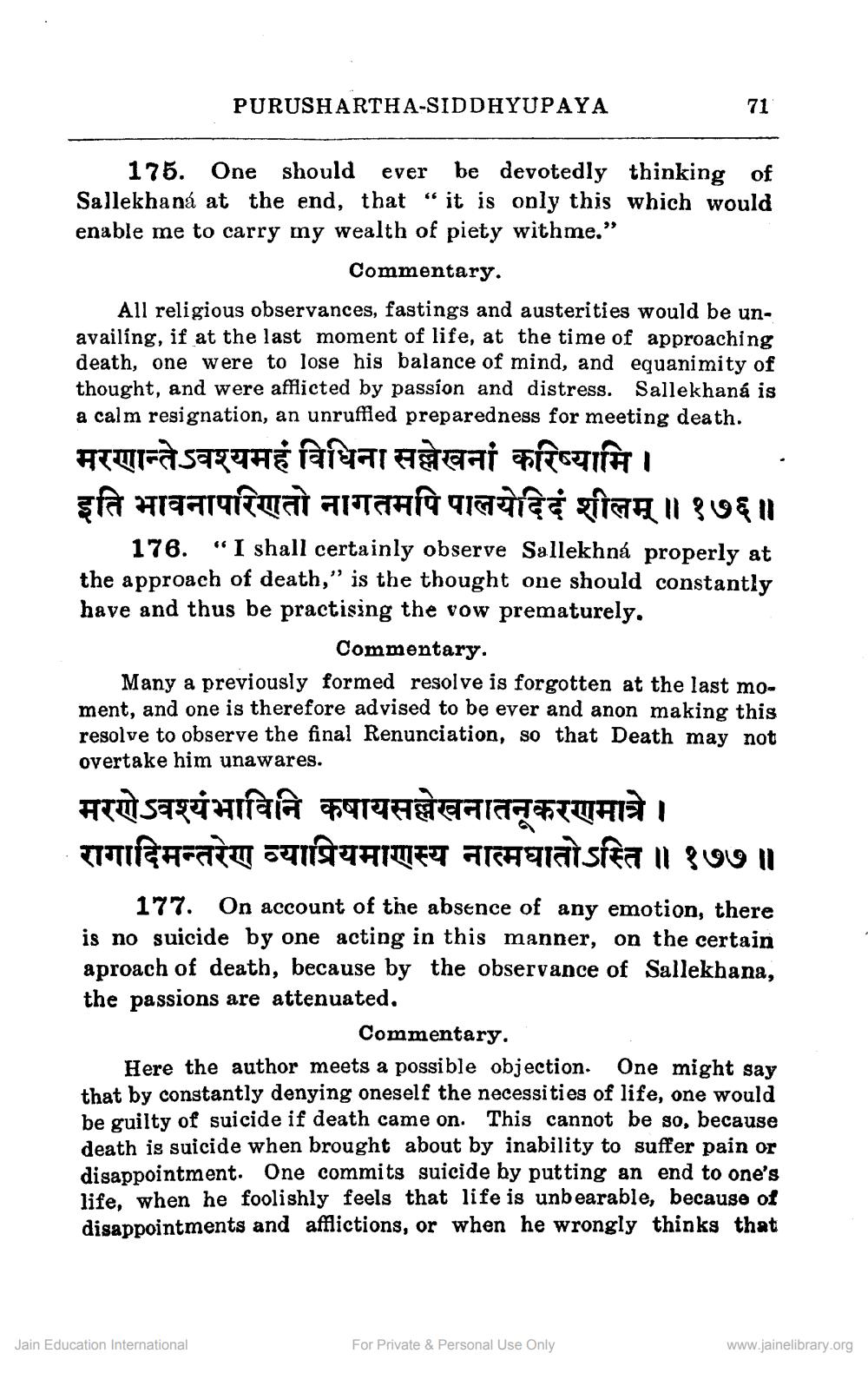________________
PURUSHARTHA-SIDDHYUPAYA
ever
be devotedly thinking of
175. One should Sallekhaná at the end, that "it is only this which would enable me to carry my wealth of piety withme."
71
Commentary.
All religious observances, fastings and austerities would be unavailing, if at the last moment of life, at the time of approaching death, one were to lose his balance of mind, and equanimity of thought, and were afflicted by passion and distress. Sallekhaná is a calm resignation, an unruffled preparedness for meeting death.
मरणान्तेऽवश्यमहं विधिना सल्लेखनां करिष्यामि । इति भावनापरिणतो नागतमपि पालयेदिदं शीलम् ॥ १७६ ॥
176. "I shall certainly observe Sallekhná properly at the approach of death," is the thought one should constantly have and thus be practising the vow prematurely.
Commentary.
Many a previously formed resolve is forgotten at the last moment, and one is therefore advised to be ever and anon making this resolve to observe the final Renunciation, so that Death may not overtake him unawares.
मरणेऽवश्यंभाविनि कषायसल्लेखनातनूकरणमात्रे । रागादिमन्तरेण व्याप्रियमाणस्य नात्मघातोऽस्ति ॥ १७७ ॥
177. On account of the absence of any emotion, there is no suicide by one acting in this manner, on the certain aproach of death, because by the observance of Sallekhana, the passions are attenuated.
Jain Education International
Commentary.
Here the author meets a possible objection. One might say that by constantly denying oneself the necessities of life, one would be guilty of suicide if death came on. This cannot be so, because death is suicide when brought about by inability to suffer pain or disappointment. One commits suicide by putting an end to one's life, when he foolishly feels that life is unbearable, because of disappointments and afflictions, or when he wrongly thinks that
For Private & Personal Use Only
www.jainelibrary.org




